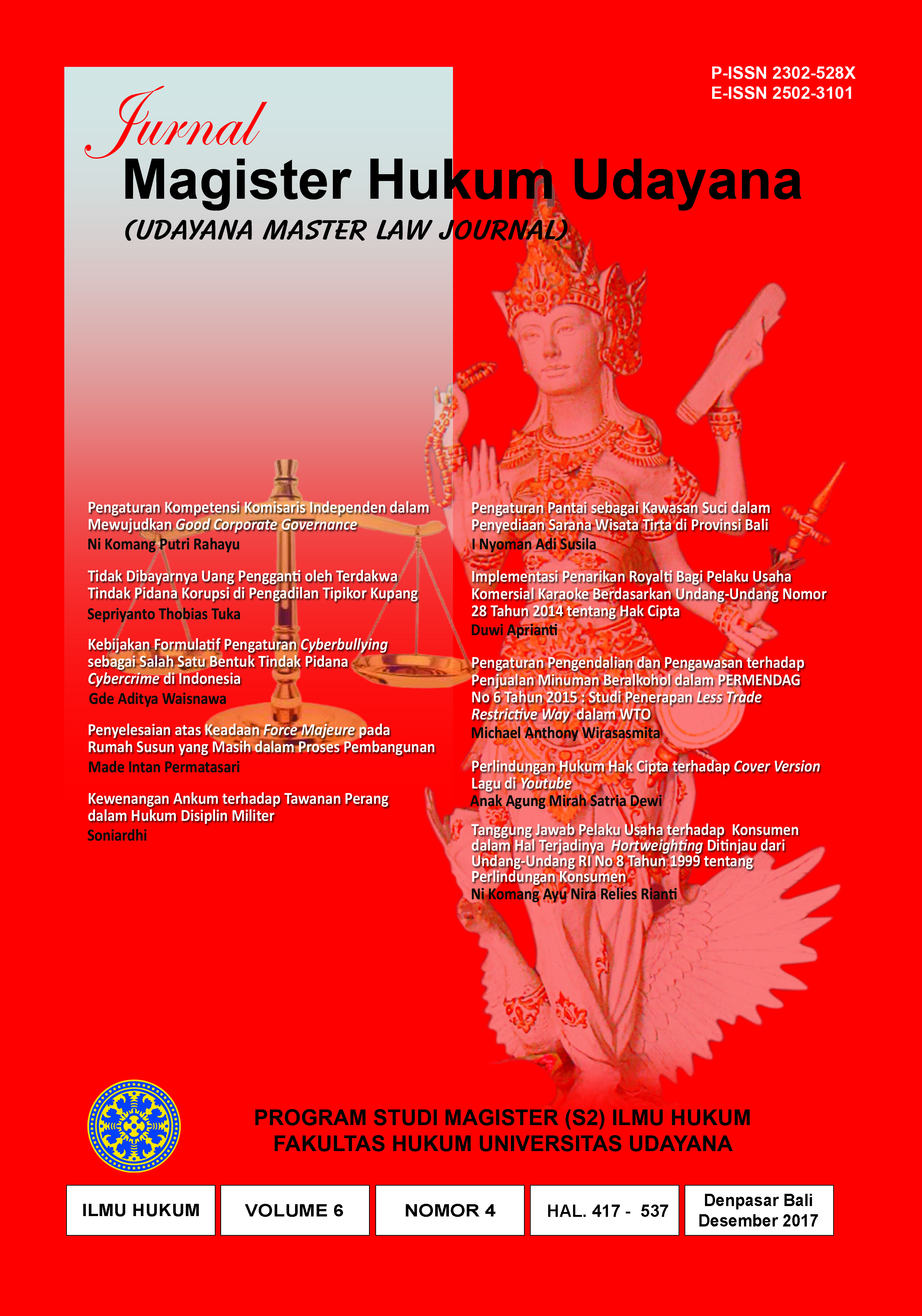KEBIJAKAN FORMULATIF PENGATURAN CYBERBULLYING SEBAGAI SALAH SATU BENTUK TINDAK PIDANA CYBERCRIME DI INDONESIA
Abstract
Indonesia as a State of law is currently a crisis of legal products that put forward substantive justice for the litigants, it is understandable because some of the basic rules that contain material and formal criminal rules have been established long and may no longer be relevant to the application of law in Indonesia today. Regardless of the controversial nature of government regulations in terms of social media conflicts related to Cyberbullying, respect for rights in expression and opinion should be realized and implemented correctly by the cyberspace. Amid the euphoria of the Indonesian people to welcome the presence of social media, must be in harmony with the spirit of behavior change by respecting and appreciating all forms of expression and opinion of someone, on the other hand the social media users should strive to be wise users when active in social media, because communication using text has the risk of misunderstanding is greater than using our five senses. the position of Article 27 paragraph (3) of the ITE Law is as lex specialis of Article 310 of the Criminal Code. Therefore, the interpretation of the norms contained in Article 27 paragraph (3) of the ITE Law regarding defamation and / or defamation can not be separated from the criminal law norms contained in Article 310 and Article 311 of the Criminal Code. So this is the background and cause conflict because of overlapping rule of law in effect, causing legal uncertainty.
Indonesia sebagai Negara hukum saat ini sedang krisis produk hukum yang mengedepankan keadilan subtantif bagi yang berperkara, itu dapat dimaklumi dikarenakan beberapa peraturan pokok yang memuat aturan materiil dan formil pidana sudah dibentuk lama dan dimungkinkan tidak relevan lagi digunakan pada penerapan hukum di Indonesia saat ini. Terlepas dari masih kontroversialnya peraturan pemerintah dalam hal konflik di media sosial yang terkait dengan Cyberbullying, penghormatan Hak dalam berekspresi dan berpendapat sudah seharusnya disadari dan diimplementasikan dengan benar oleh para pengakses dunia maya. Pasal 27 ayat (3) UU ITE adalah sebagai lex specialis dari Pasal 310 KUHP. Maka, penafsiran norma yang termuat dalam Pasal 27 ayat (3) UU ITE mengenai penghinaan dan/atau pencemaran nama baik tidak bisa dilepaskan dari norma hukum pidana yang termuat dalam Pasal 310 dan Pasal 311 KUHP. Sehingga hal inilah yang melatarbelakangi dan menimbulkan konflik karena tumpang tindihnya aturan hukum yang berlaku sehingga menyebabkan ketidak pastian hukum.
Downloads
Jurnal Magister Hukum Udayana (Udayana Master Law of Journal) by Faculty of Law Udayana University is licensed under a Creative Commons Attribution-NonCommercial 4.0 International License.



















